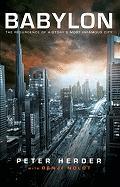- Start
- Slaughtered But Still Standing: Prophetic Rhetoric and the Legacies of a Lynched Lamb in Apocalyptic Literature
Slaughtered But Still Standing: Prophetic Rhetoric and the Legacies of a Lynched Lamb in Apocalyptic Literature
Angebote / Angebote:
The Roman Empire of the first century CE told a story about itself as a just and even-handed, yet eternally powerful and in-control, body politic. For anyone who got in its way-like Jesus of Nazareth-it wrote in blood a story of failure and irrelevance. But the author of the Apocalypse of John (The book of Revelation) told a different story. This Jesus whom the Romans slaughtered still stands, and his persecuted followers (as the seer John imagined them) bear witness to Rome's cruelty, injustice, and ultimate downfall. Thus, the Apocalypse of John refutes Rome's claims to both a benevolent and irresistible rule. It becomes, according to Abraham Smith, a kind of prophetic rhetoric, envisioning a wholly different community living under the sovereignty of God. The Book of Revelation, Smith says, is not a blueprint to an indeterminate future, but rather a shockingly relevant political statement about social and political values under the reign of God. The book will help readers break out of the typical approach to Revelation as a crystal ball foretelling a weird future. It will allow them to see the book's original messages, and to apply those messages more assiduously to the contemporary United States.
Folgt in ca. 15 Arbeitstagen




